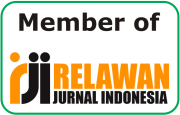Small Group Discussion Method in Forming Students' Collaboration and Creativity Competencies
Abstract
This study aims to analyze the implementation of Small Group Discussion in developing students' collaboration and creativity competencies, as well as to identify obstacles and effective strategies that can support the success of this method. This study uses a descriptive qualitative approach with field research methods. This approach was chosen to deeply understand the implementation of Small Group Discussion in developing students' collaboration and creativity competencies. The results of this study indicate that the Small Group Discussion Method at SMPN 1 VII Koto Sungai Sariak has great potential in developing students' Collaboration and Creativity competencies, although it still faces challenges such as the dominance of certain students, lack of self-confidence, and limited time and resources. More specific and structured planning is needed to maximize student engagement, while implementation shows increased collaboration in sharing tasks and providing feedback, although contributions within the group are still uneven. Students' creativity begins to develop through original ideas, but the elaboration of ideas requires technical support such as brainstorming and technology. Evaluation with assessment rubrics and joint reflection helps identify students' strengths and weaknesses. With intensive guidance, fair task-sharing strategies, and technology integration, this method can be optimized to create more collaborative and creative learning.
Keywords
Full Text:
PDFReferences
Afandi, Muhamad, Evi Chamalah, Oktarina Puspita Wardani, and H Gunarto. “Model Dan Metode Pembelajaran.” Semarang: Unissula 16 (2013).
Afriadi, Febrian. “Pembelajaran Kolaboratif Dalam Pendidikan Perguruan Tinggi.” IHSAN: Jurnal Pendidikan Islam 2, no. 3 (2024): 143–57.
Akbar, Jakub Saddam, Putu Ari Dharmayanti, Vibry Andina Nurhidayah, et al. Model & Metode Pembelajaran Inovatif: Teori Dan Panduan Praktis. PT. Sonpedia Publishing Indonesia, 2023.
Baedowi, Ahmad. Manajemen Sekolah Efektif: Pengalaman Sekolah Sukma Bangsa. Pustaka Alvabet, 2015.
Brown, T. “Change by Design: How Design Thinking Creates New Alternatives for Business and Society.” Collins Business, 2009.
Dananjaya, Utomo. Media Pembelajaran Aktif. Nuansa cendekia, 2023.
Diki, Syafitri. “Pengaruh Model Pembelajaran Berbasis Proyek dalam Meningkatkan Kemampuan Berpikir Kritis Peserta Didik pada Mata Pelajaran PAI Kelas XI di SMA Negeri 2 Kalianda.” Preprint, UIN RADEN INTAN LAMPUNG, 2024.
Firmansyah, Haris. “Implementasi Model Pembelajaran Kooperatif Untuk Meningkatkan Keterampilan Berpikir Kritis Pada Siswa Dalam Pembelajaran Sejarah.” JIM: Jurnal Ilmiah Mahasiswa Pendidikan Sejarah 9, no. 2 (2024): 524–32.
Guilford, Joy P. “Creativity: Yesterday, Today and Tomorrow.” The Journal of Creative Behavior 1, no. 1 (1967): 3–14.
Johar, Rahmah, and Latifah Hanum. Strategi Belajar Mengajar. Deepublish, 2016.
Johson, D W, and R T Johnson. “Learning Together and Alone.” Boston University of Minnesota, 1999.
Mardizal, Jonni, and Nizwardi Jalinus. Manajemen Dan Kepemimpinan Kepala Sekolah Kejuruan. Jonni Mardizal, 2023.
Marni, Marni, Andreas Teko, and Lisna Novalia. “Peran Pembelajaran Kooperatif Dalam Meningkatkan Hasil Belajar Dan Partisipasi Aktif Siswa Di Dalam Kelas.” Coram Mundo: Jurnal Teologi Dan Pendidikan Agama Kristen 6, no. 2 (2024): 270–81.
Maulidah, Evi. Character Building Dan Keterampilan Abad 21 Dalam Pembelajaran Di Era Revolusi Indutri 4.0. 2019.
Meliza, Meliza, Siraj Siraj, and Zahriyanti Zahriyanti. “Implementasi Manajemen Kurikulum Merdeka Pada Sekolah Dasar Di Kabupaten Bireuen.” Jurnal Penelitian, Pendidikan Dan Pengajaran: JPPP 5, no. 2 (2024): 127–68.
Mustari, Mohamad. Teknologi Informasi Dan Komunikasi Dalam Manajemen Pendidikan. Gunung Djati Publishing Bandung, 2023.
Ramli, Akhmad, Rahmadani Putri, Eliza Trimadona, et al. LANDASAN PENDIDIKAN: Teori Dan Konsep Dasar Landasan Pendidikan Era Industri 4.0 Dan Society 5.0 Di Indonesia. PT. Sonpedia Publishing Indonesia, 2023.
Septikasari, Resti, and Rendy Nugraha Frasandy. “Keterampilan 4C Abad 21 Dalam Pembelajaran Pendidikan Dasar.” Tarbiyah Al-Awlad: Jurnal Kependidikan Islam Tingkat Dasar 8, no. 2 (2018): 107–17.
Suparsawan, I Komang. Kolaborasi Pendekatan Saintifik Dengan Model Pembelajaran STAD Geliatkan Peserta Didik. Tata Akbar, 2020.
Torrance, E Paul, and Michael F Shaughnessy. “An Interview with E. Paul Torrance: About Creativity.” Educational Psychology Review, JSTOR, 1998, 441–52.
Wang, Claudia, Monique Zhang, Ali Sesunan, and Laurencia Yolanda. “Peran Teknologi Dalam Transformasi Pendidikan Di Indonesia.” Kemdikbud 4, no. 2 (2023): 1–7.
Wardani, Dewi Ayu Wisnu. “Problem Based Learning: Membuka Peluang Kolaborasi Dan Pengembangan Skill Siswa.” Jawa Dwipa 4, no. 1 (2023): 1–17.
Yuliana, Eli. “Pengembangan Soal Open Ended Pada Pembelajaran Matematika Untuk Mengidentifikasi Kemampuan Berfikir Kreatif Siswa.” Prosiding Seminar Nasional Pendidikan Matematika (SNAPTIKA), 2015, 165–72.
Zakiah, Nur Eva, Yoni Sunaryo, and Asep Amam. “Implementasi Pendekatan Kontekstual Pada Model Pembelajaran Berbasis Masalah Berdasarkan Langkah-Langkah Polya.” Teorema: Teori Dan Riset Matematika 4, no. 2 (2019): 111–20.
DOI: http://dx.doi.org/10.35931/aq.v19i5.4787
Refbacks
- There are currently no refbacks.
Copyright (c) 2025 Muaddyl Akhyar, Ahmad Sabri, Ilpi Zukdi

This work is licensed under a Creative Commons Attribution 4.0 International License.
Al Qalam: Jurnal Ilmiah Keagamaan dan Kemasyarakatan
index by:
Publish by:
Sekolah Tinggi Ilmu Al-Qur'an Amuntai
Contact us:
Address: Jl. Rakha Pakapuran, Amuntai Utara
Kabupaten : Hulu Sungai Utara
Kode Pos : 71471
Provinsi : Kalimantan Selatan
Telephone : 085251613000
Email: hafizhihusinsungkar@gmail.com

This work is licensed under a Creative Commons Attribution 4.0 International License


